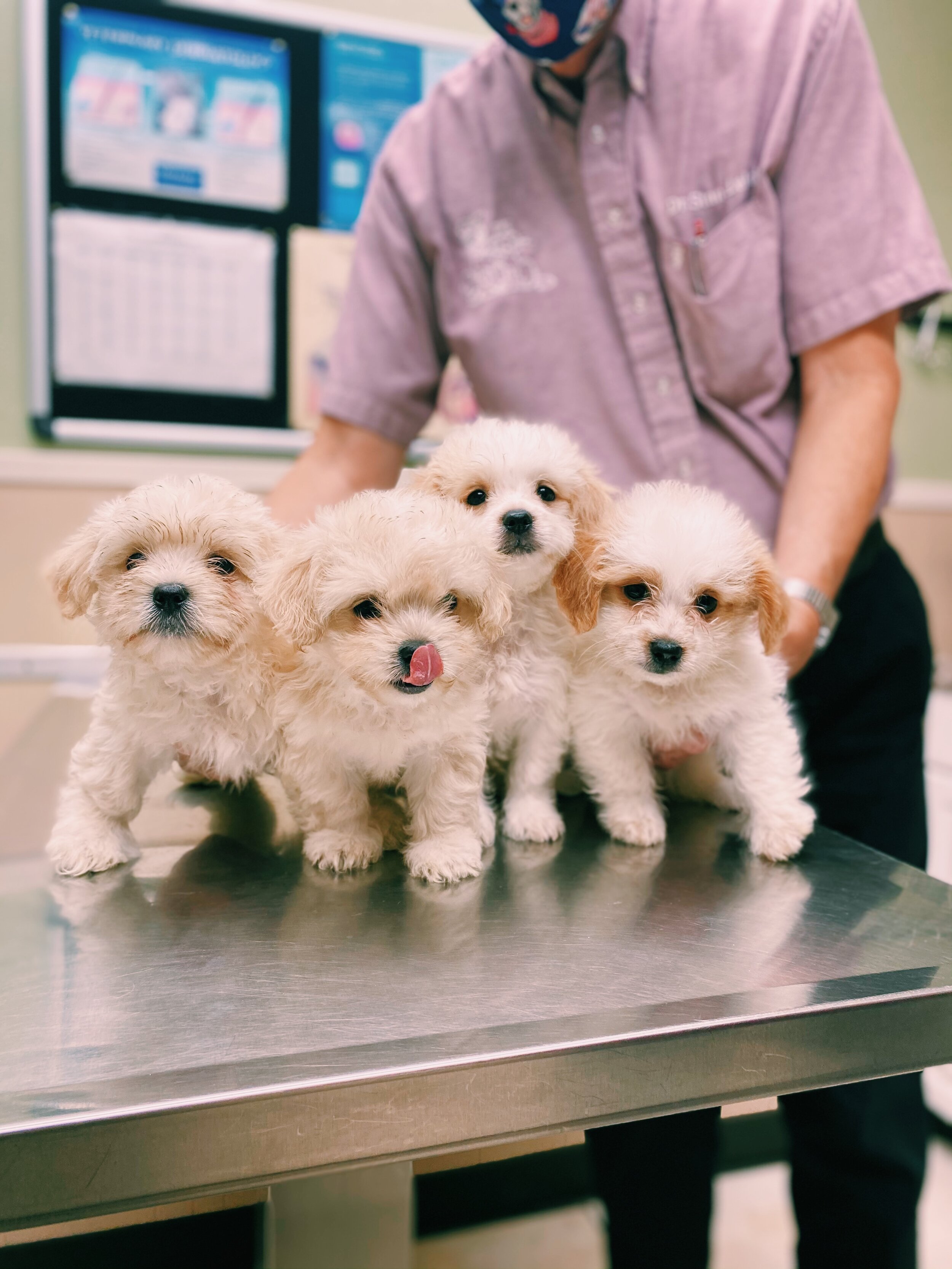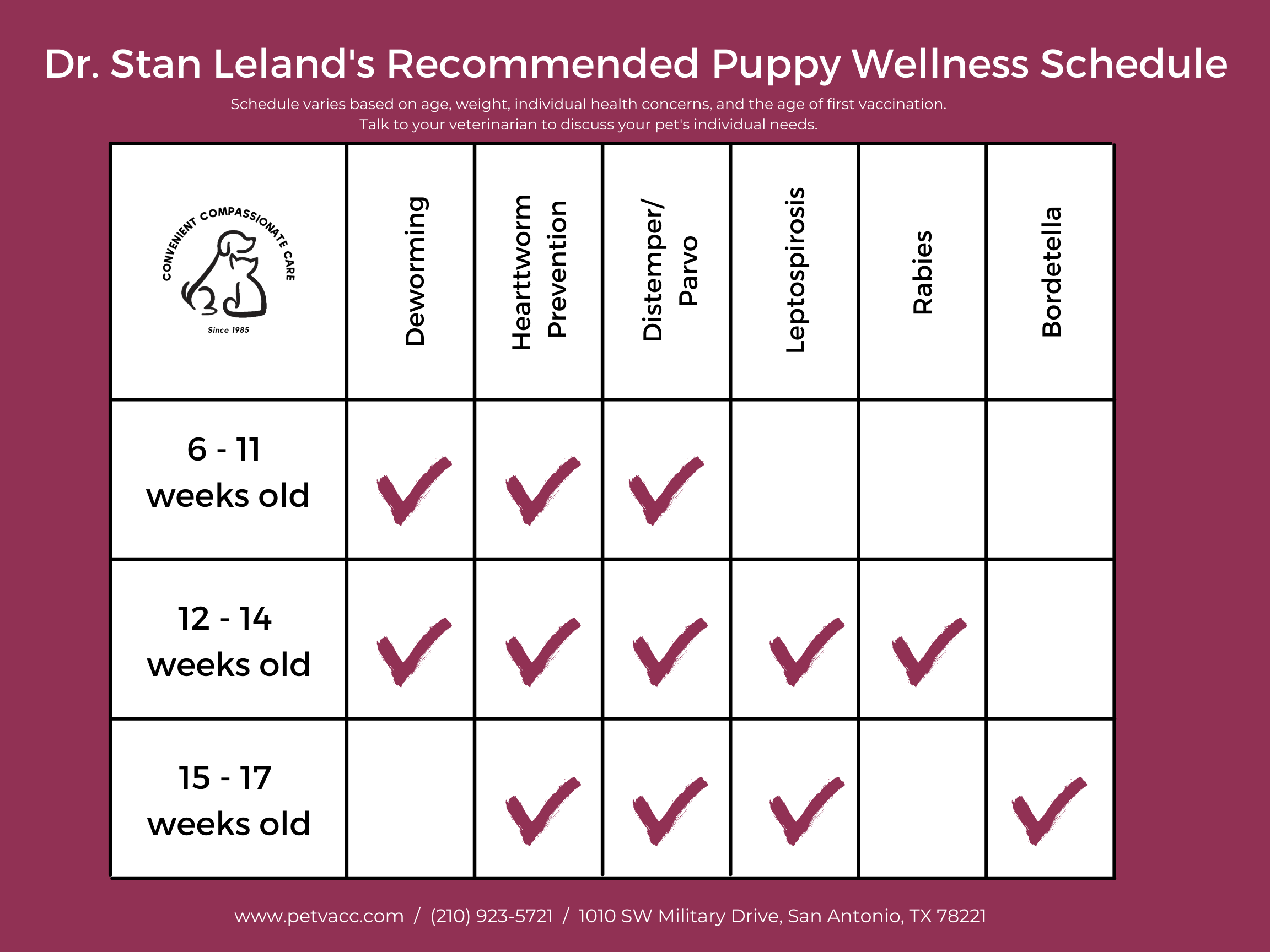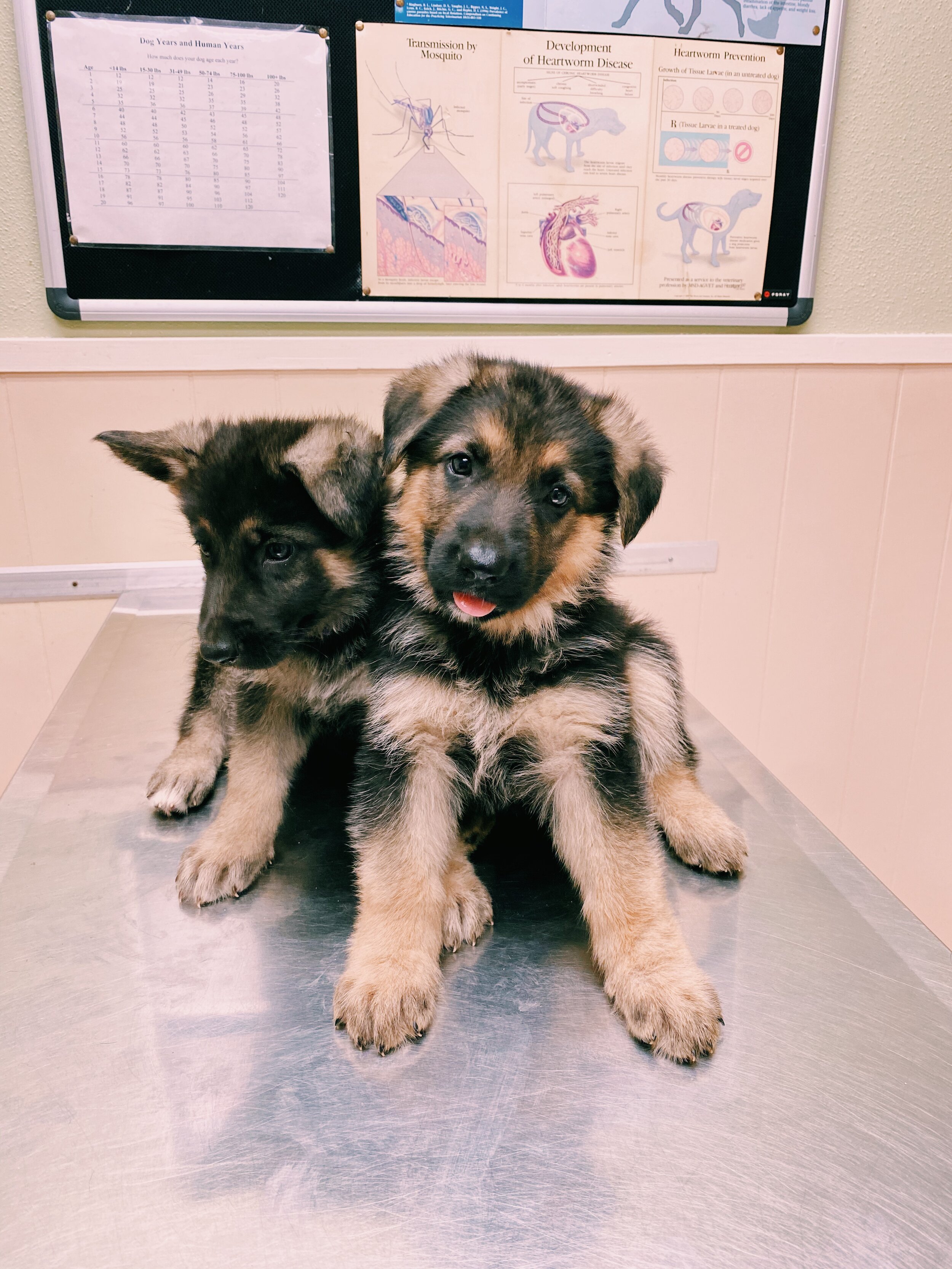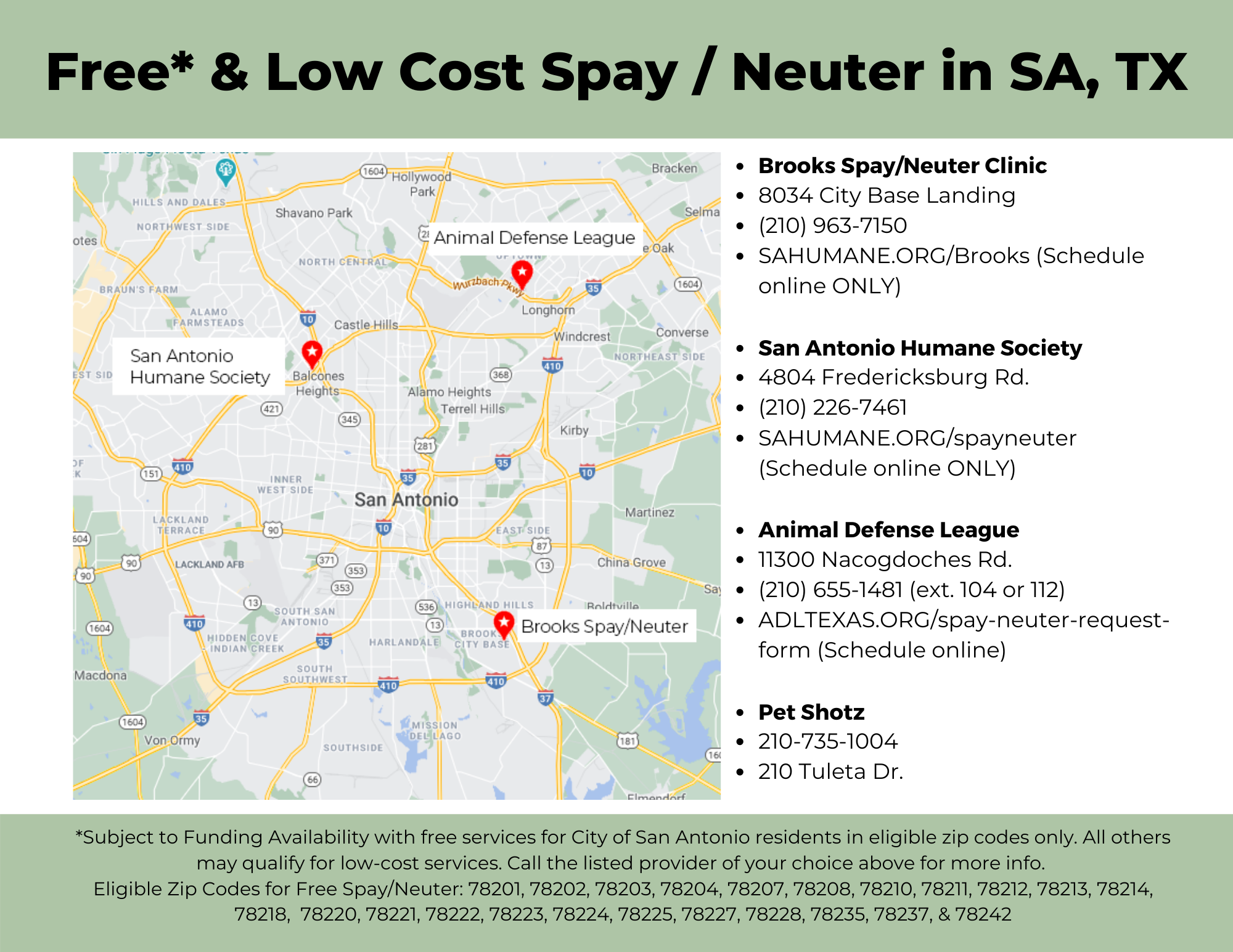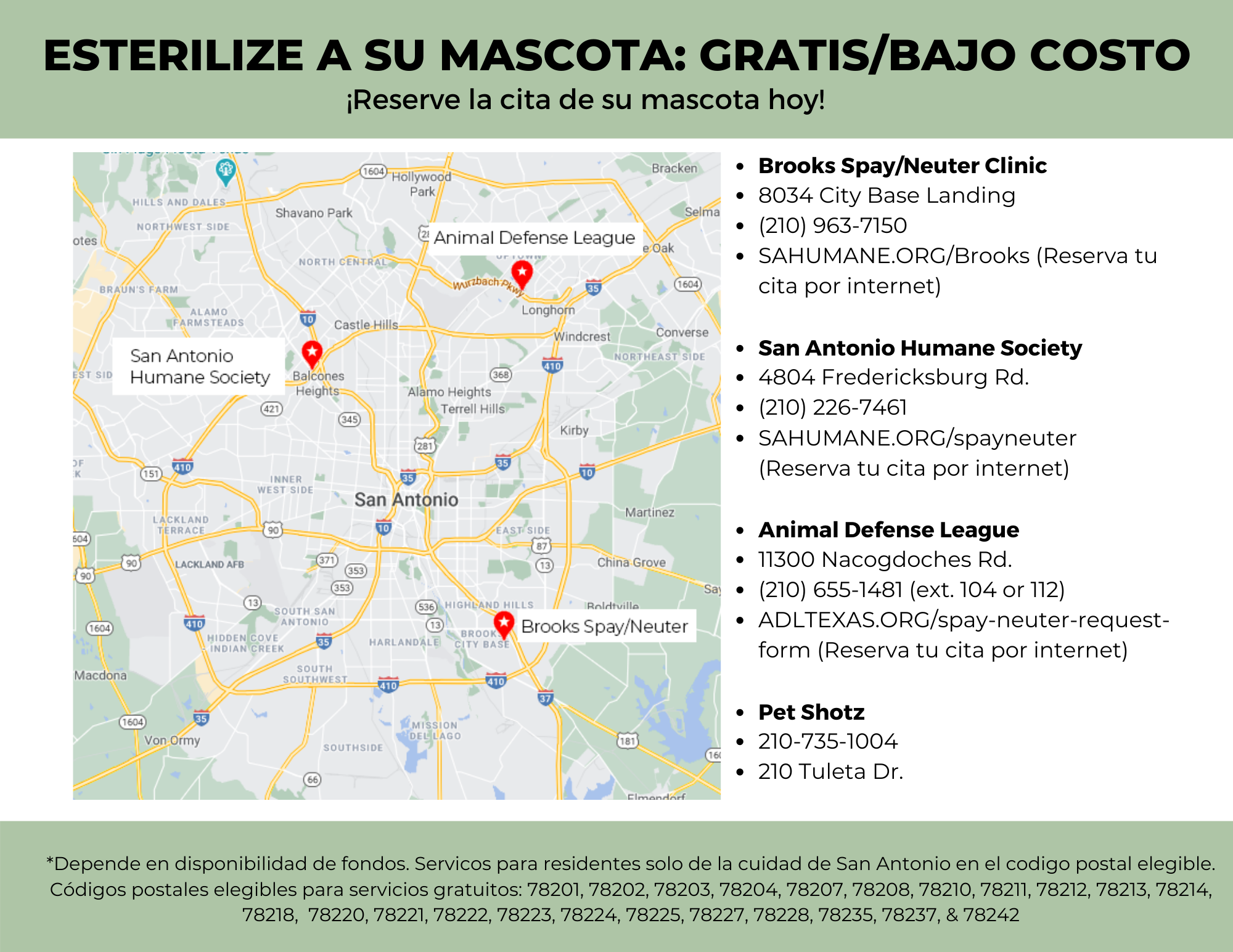New puppies are an exciting and sweet addition to your life, and we have the advice to help prepare you for providing the best life for your pet. With over 35 years of caring for dogs and cats in the greater San Antonio area, Dr. Leland at The Pet Vaccination Clinic can provide convenient, compassionate care for vaccinations and minor treatments.
Research the Breed & Needs
All dogs are wonderful in their own unique ways, which also means not every dog is built for every lifestyle. Researching different breed’s expected lifespans, common health issues, need for activity, and grooming needs can help you pick the right companion for you and your environment. Websites like the American Kennel Club and Dog Time are a great place to start.
2. Prepare Your Home for the Puppy
Puppies are curious and may investigate everything within reach. Taking time to puppy-proof your home will help to protect them from unnecessary dangers.
Household chemicals such as:
Antifreeze
Bleach
etc.,
and certain foods including:
Raisins
Onions
Xylitol (a common artificial sweetener)
& Chocolate are all common toxins you want your dog to avoid.
If your dog has gotten into something they shouldn’t, call your veterinarian or poison control.
3. Get a Complete Set of Puppy Vaccinations
Many canine diseases can now be prevented through vaccination, and vaccinations can contribute to good health and a longer life span for your dog. We strongly recommend keeping your puppy away from any unknown or unvaccinated dogs until they have completed their puppy vaccinations to reduce the risk of sickness.
With Dr. Stan Leland, your puppy’s first vaccinations will be as easy as 1-2-3:
Wellness exam
Deworming & heartworm preventative
Age-appropriate vaccinations
4. Potty Training
House training a puppy can be a big challenge, but with consistency and positive reinforcement, it can be done! If you notice your puppy is having issues, or inconsistent stool, talk to your veterinarian, as other health conditions could be the cause.
Take your puppy outside after every meal, when they wake up, and after playtime
A regular schedule will help teach your puppy appropriate times and places to potty
Pick one consistent area in your yard when you take the puppy out, to give another sense of routine
Consistency, repetition, and persistence are the keys to success!
5. Building Your Bond
Puppies are social creatures and thrive on healthy interaction and attention. By providing lots of love and playtime, you are not only building the bond with your pup but also helping them to relieve all that puppy energy that needs to be spent.
15-30 minutes of training time a day can help build your relationship and offer good mental exercise for your pet
Use positive reinforcement to encourage proper behavior and boundaries
Ensure your puppy has appropriate toys to keep them busy while you’re away
6. Spay and Neuter
Spaying and neutering are relatively safe and painless operations. Spaying or neutering can help prevent certain cancers and infections later in life and can help avoid unwanted behaviors related to hormones. When fewer animals reproduce, fewer animals lose their lives in animal shelters or on the streets because there were not enough homes for them.
Spaying is the procedure used for females that removes the uterus and ovaries, therefore removing the heat cycle. Dogs can go into heat every 6 months for 14-21 days a year. Cats can go into heat for 3-15 days as many as three times a year.
Neutering, the procedure used for males, removes the testicles from the animals. Spaying and neuter provide several health benefits as well as preventing unwanted puppies and kittens.
7. Training
Strengthening your bond and teaching healthy habits, training is a great way to build a healthy relationship with your four-legged friend. In San Antonio, there are a few options you can look into for training classes and professional help:
San Antonio Dog Training Club: https://sadtc.org/index.php
San Antonio Dog Training Co: https://www.sanantoniodogtrainingco.com/training-programs
You Local Petsmart: https://services.petsmart.com/training
Camp Bow-Wow: https://www.campbowwow.com/san-antonio-airport/services-pricing/dog-training/
For free training and help, the internet is a wonderful resource for those wanting to “homeschool” their dog. Some of our favorite YouTube training resources:
McCann Dogs: https://www.youtube.com/user/McCannDogs
Nigel Reed: https://www.youtube.com/user/LondonDogListener
8. Make Regular Visits to Your Veterinarian
Once your puppy has completed their first phase of shots, they’ll only need them once a year going into adulthood. Your pet should see the vet at least once a year for their routine wellness exam and annual vaccinations. Establishing a relationship with your veterinarian will help document their growth and wellness throughout their life and will make it easier to catch health issues early on.
9. Year-round Parasite Prevention
Parasite prevention is strongly recommended, especially here in San Antonio, Texas where mosquitoes (heartworms), fleas, ticks, and other parasites are year-round issues. Fleas, ticks, hookworms, whipworms, roundworms, tapeworms, and heartworms can all be easily prevented.
At the Pet Vaccination Clinic, we carry a variety of flea and tick prevention to fit your pet’s needs. For heartworm prevention, we have monthly tablets or a Proheart injection that has 6 or 12 months of coverage per injection.
Fleas
Fleas can chase severe discomfort, leading to scratching, chewing, biting, and restlessness
Fleas can carry and transmit diseases and tapeworms
Fleas cause Flea Allergy Dermatitis (FAD), a common skin allergy
Ticks
By latching onto a host to food on blood, ticks can spread many debilitating or even deadly diseases to both dogs and humans
Brown dog ticks are the most widespread and can be found anywhere dogs are, including indoors.
Intestinal Worms
Hookworms, whipworms, roundworms, and tapeworms can affect your dog in various ways, including weight loss, diarrhea, vomiting, or even intestinal inflammation. Puppies can get these intestinal parasites from their mothers, contaminated environments, or from eating an infected rodent or flea.
Heartworms
Heartworm infection is acquired from the bite of an infected mosquito and, if left untreated, is life-threatening.
Although early signs of heartworms are hard to catch without a heartworm test, a progressed heartworm disease leads to coughing, exercise intolerance, difficulty breathing, or collapse.
Dr. Leland provides compassionate care, taking the time to explain animal care thoroughly to clients so they can champion their pet’s health
Dr. Stan Leland opened Pet Vaccination Clinic on June 1, 1985. Since day one, Pet Vaccination Clinic has provided efficient and professional care without losing the personal touch. The Pet Vaccination Clinic is located at 1010 SW Military Drive in San Antonio, TX and offers multiple services including, but not limited to, vaccinations, flea and tick prevention, deworming, exams, health certificates, and heartworm preventative. Contact us here to make an appointment.


